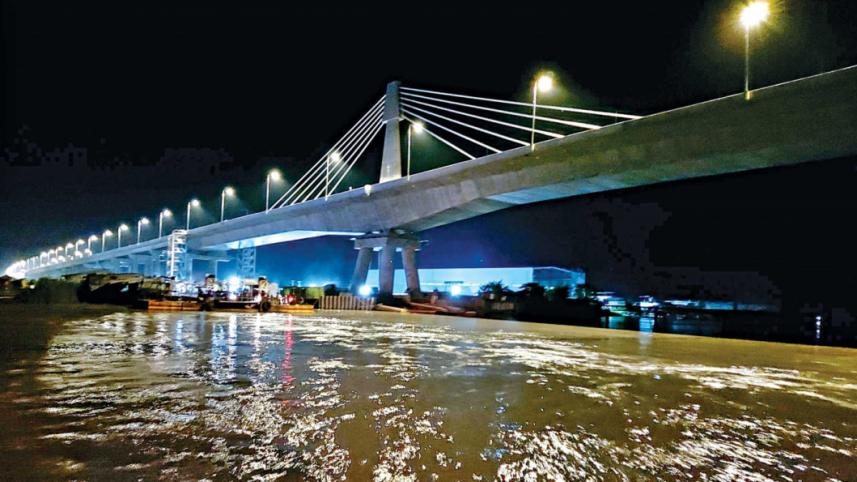Execution of public projects must be more efficient

The long-awaited opening of the Payra Bridge is finally set to take place next month, five years after the stipulated deadline and at a cost that is 3.5 times higher than the original estimate. Although the bridge, once complete, is expected to bring huge relief to the people living in the southern region, it stands as a testament to how poorly our development schemes are planned and implemented.
The project was supposed to be completed within December 2016 at a cost of Tk 413.28 crore. However, it has been delayed by five years and the cost has skyrocketed to Tk 1,447.24 crore. According to a report published by this daily on Thursday, the main reasons for the delay and the cost escalation include a poorly conducted initial feasibility study (which led to a major change in the bridge's design), a long delay in land acquisition, a lengthy tender process and, more recently, problems caused by the Covid-19 pandemic.
This is something that we have heard all too often, about way too many government projects. The fact that over the last nine years, the Payra project's cost had to be revised three times and its deadline was deferred twice, speaks volumes about the quality of planning and implementation by government authorities. We believe the main problem is that, despite the repeated failures to complete projects on time and within the initial cost estimate, no one in the administration—or those in charge of the projects—are ever held accountable for such failures. Such failures are often an outcome of inefficiency or corruption—or both. Despite the prime minister's directive last December to take action against those responsible for the delays in project execution, we have not seen any meaningful action so far, which is extremely disappointing.
Why should the government projects be delayed and made costlier every time? Such delays and cost escalations can only be accepted as an exception; they can't be the norm. But in the unlikely event that they do—as in the case of our publicly funded projects—it has to be accepted that the concerned authorities are clearly the ones at fault. And the sad reality is that it is the general public who suffer when the abnormal is normalised. It's their money that goes into keeping these costly projects afloat.
The only way to change this culture of delay in publicly funded projects is to hold the authorities concerned accountable. In that regard, we would like to remind the authorities of the prime minister's directive and ask that those responsible for the delay in the Payra Bridge construction project be held to account. Not doing so will only encourage those who profit from ill-executed projects.



 For all latest news, follow The Daily Star's Google News channel.
For all latest news, follow The Daily Star's Google News channel.
Comments